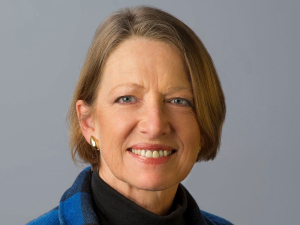OPINION: "Get us out of Paris” has achieved resonance and volume as a cry to save farming.
Achieving the targets will be increasingly difficult and attempts are already imposing costs in paperwork.
Leaders of NZ First and of ACT have been heard to question whether New Zealand is benefitting from involvement.
But the “stay” arguments are important.
We’ve heard that over 85% of discussion about trading with other countries focus on environment and climate goals. The implication is that if we left, we would face trade barriers.
Domestically, we know that social licence to operate is under constant watch, with some groups actively campaigning for stricter regulations around food production. The campaigns don’t generally point out that the result of more regulations would be food increasing in price (possibly because of farmers going out of business, as has happened in the UK).
Governments, both local and national, listen to society, and a vocal minority can have a disproportionate impact on decisions. The policy analysts don’t always understand the potential unintended consequences. A reduction in the national herd or flock might reduce environmental impact, but if food production reduces, prices increase – supply and demand.
Read More:
Food price is a visible component in the cost of living, which is of greater concern to New Zealanders than any other issue for the country. The IPSOS monitoring report released in June indicated that over half (55%) of the 1002 respondents rated cost of living number one. Climate change was eighth (15%) and environment was 16th (5%).
Some people might be tempted to argue that with almost four times as many people caring more about the cost of living than climate change, we should withdraw from the Paris Agreement, but food is only a part of the cost of living. Further over 40% of the food consumed in New Zealand comes from overseas… Any sanctions imposed on us because of withdrawal could affect the sugar, chocolate, cereals, vegetable oils, peanuts and coffee that we don’t produce here in sufficient quantity at an affordable price.
Of considerable significance would be the reaction of current trade partners and the premium customers purchasing our products.
Instead of leaving, there is another path that opens up by staying.
The Paris Agreement has now been endorsed by all 197 countries of the United Nations; 194 have solidified their support with formal approval (Iran, Libya and Yemen have not). The US has started proceedings to withdraw.
Successive governments have made different interpretations of the Paris Agreement over the years, mostly to do with food security. However, the farmers who were actually at the meeting where the Agreement was thrashed out are clear – all developed countries must do their best to reduce greenhouse gases, but do so without endangering food production.
It is this clause that is vital for all farmers and growers, and why leaving the Paris Agreement would be detrimental.
Our overt attempts at reducing GHG have proved successful. Efficiency has increased, and though beef cattle numbers and milk solid production have increased, environmental impact has not. This is good for meeting the increased demand for high quality protein, and our export goals.
The OECD is currently conducting a survey to gauge “The transformative effect of the Paris Agreement: What has changed after 10 years?” This gives New Zealand the opportunity to highlight improvements in efficiencies of food production – more food for lower impact. It also gives the chance to show that doing anything more in terms of land conversion or reduction in stock numbers will have a significant and detrimental effect on food production.
The primary sector has spent a lot of time and money debating the issues (with considerable support of domestic aviation… something of a fossil fuel-using irony) as our leaders met and discussed options. The result is a sector that is more closely aligned, working in a more integrated fashion, than ever before.
Further, we have the data to indicate that, by various means, methane has been reduced per unit of product, while economic contribution has increased. Social licence to operate is still being challenged, but we have the data to support our position.
Farmers and growers can be proud of what has been achieved, whilst pointing out that the next step might contravene the intention of the Paris Agreement – that we have done everything we can…
Dr Jacqueline Rowarth, Adjunct Professor Lincoln University, is a director of DairyNZ and Ravensdown. She is also a member of the Scientific Council of the World Farmers’ Organisation. This email address is being protected from spambots. You need JavaScript enabled to view it.











